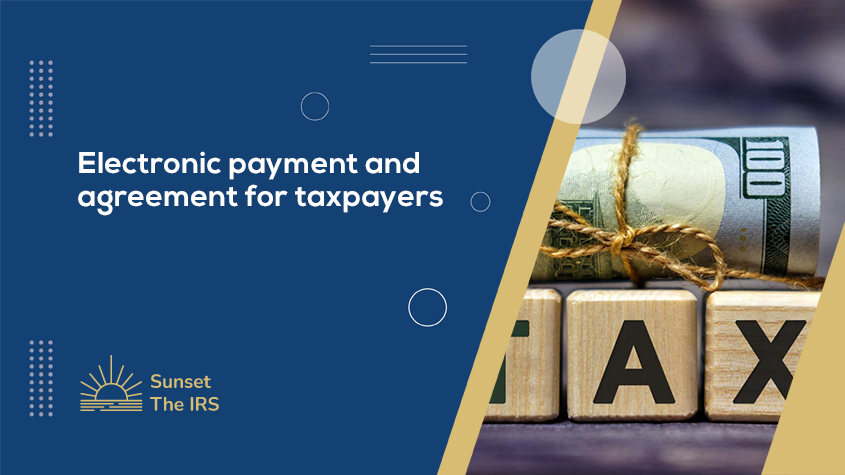
As taxpayers begin filing their tax returns for the 2023 tax season, those who owe taxes to the Internal Revenue Service (IRS) should be aware that there are electronic payment and agreement options available that can help them avoid penalties and interest.
Taxpayers who owe taxes can make electronic payments directly from their bank accounts using the IRS Direct Pay system, which is available on the IRS website. This system is free to use and allows taxpayers to schedule payments up to 30 days in advance.
Taxpayers who are unable to pay their full tax bill can also set up an installment agreement with the IRS. Installment agreements allow taxpayers to make monthly payments on their tax debt over time, rather than paying the full amount upfront. The IRS offers several types of installment agreements, including online payment agreements, which can be set up using the Online Payment Agreement tool on the IRS website.
Taxpayers who owe $50,000 or less in combined tax, penalties, and interest can also apply for a short-term payment plan, which allows them to pay off their tax debt in full within 120 days. This option is available through the Online Payment Agreement tool on the IRS website.
By using these electronic payment and agreement options, taxpayers who owe taxes can avoid late payment penalties and interest, as well as the need to contact the IRS directly. Taxpayers who are unable to pay their full tax bill should take advantage of these options as soon as possible, to avoid additional penalties and interest charges.
Here are some frequently asked questions about using electronic payment and agreement options for taxpayers who owe taxes:
Q: Are there any fees associated with using electronic payment and agreement options?
A: No, there are no fees for using the IRS Direct Pay system or for setting up most types of installment agreements. However, some types of installment agreements may require a setup fee or a fee for making payments with a credit card.
Q: Can taxpayers use electronic payment and agreement options for all types of taxes owed?
A: Yes, taxpayers can use these options for most types of taxes owed, including income taxes, self-employment taxes, and certain other taxes.
Q: How long does it take for an installment agreement to be approved?
A: It can take up to 30 days for an installment agreement to be approved by the IRS. Taxpayers should continue to make payments on their tax debt during this time to avoid additional penalties and interest.
Q: Can taxpayers change the terms of their installment agreement?
A: Yes, taxpayers can change the terms of their installment agreement if their financial situation changes or if they need to adjust the payment amount for any reason. Taxpayers should contact the IRS as soon as possible if they need to make changes to their installment agreement.
Q: What happens if taxpayers miss a payment on their installment agreement?
A: If taxpayers miss a payment on their installment agreement, they may be subject to additional penalties and interest. Taxpayers should contact the IRS as soon as possible if they are unable to make a payment on their installment agreement.


